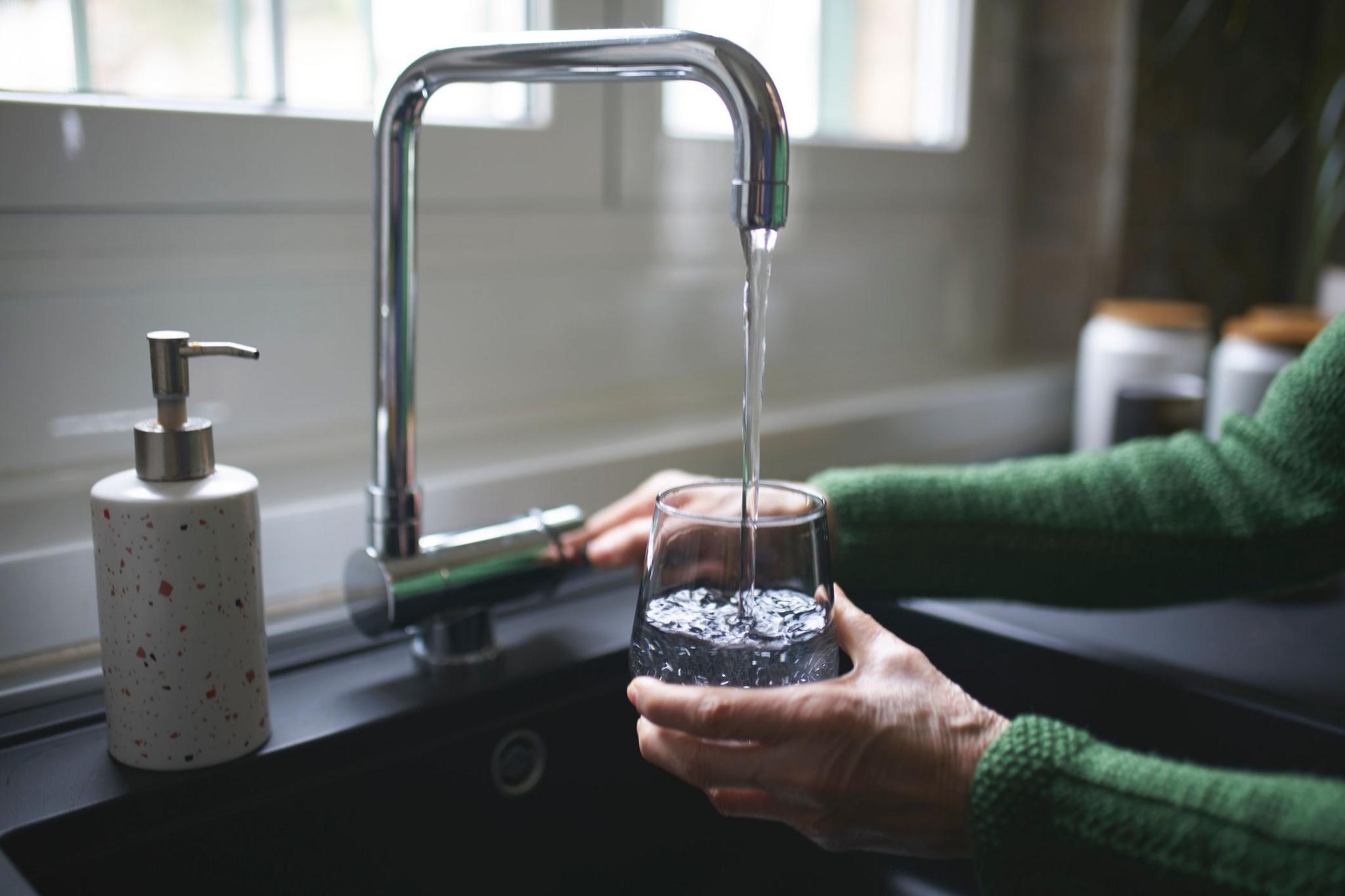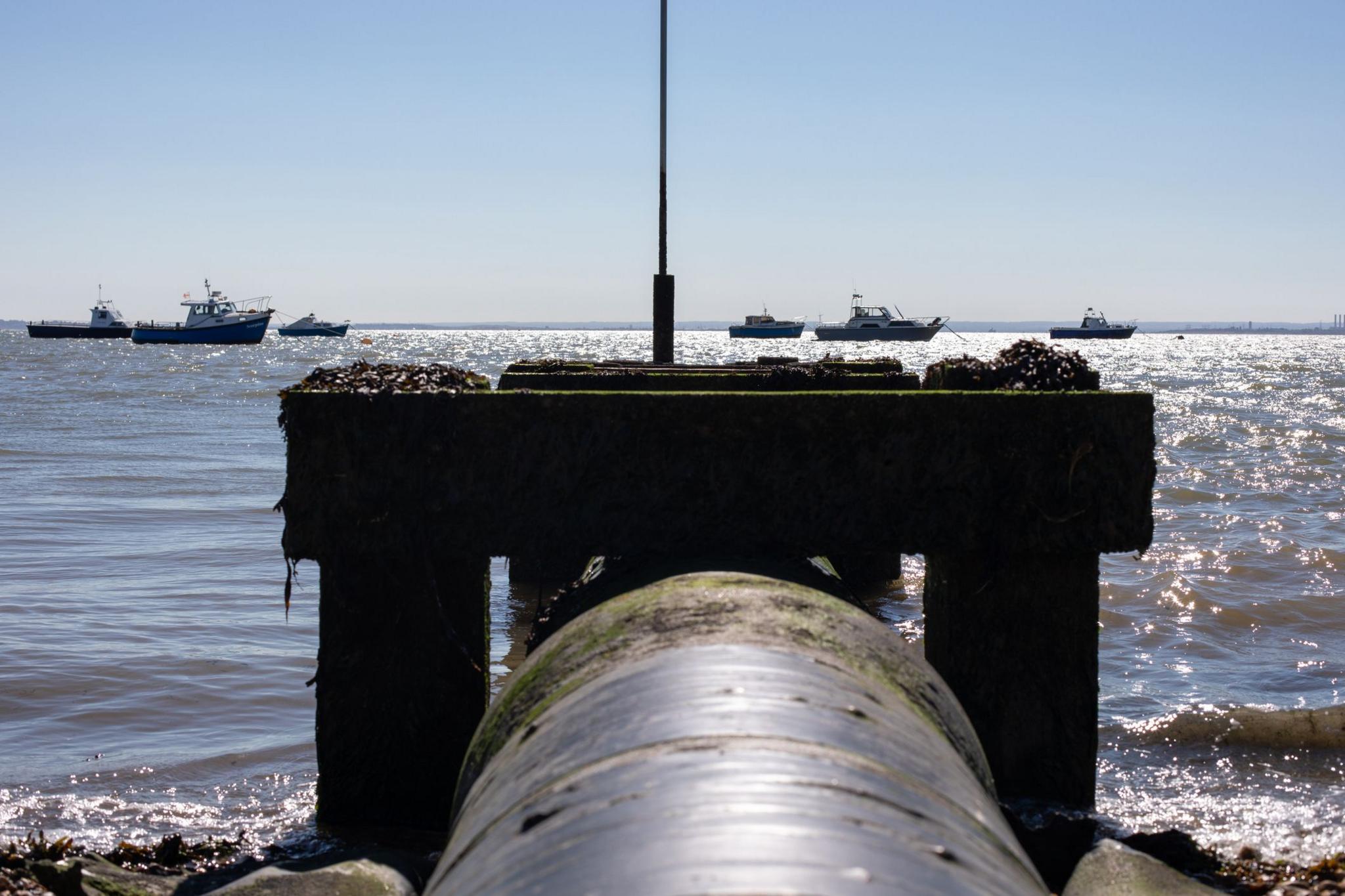Higher compensation proposed for poor water service

- Published
Water companies that fail to meet basic standards will have to pay customers more in compensation, the government is proposing.
New rules for what could trigger these payments, including failing to carry out meter readings or installations as promised, will also be introduced.
Some payments could amount to customers claiming at least a quarter of their annual water and sewerage bill.
The minimum payment for most failings would double to £40, the government is proposing.
These new proposals follow the Water (Special Measures) Bill, external announced in the King's speech last month, promised to improve water quality.
Environment Secretary Steve Reed said households and businesses had been let down by water companies.
“The new Government will clean up the water industry and turn the tide on the destruction of our waterways ensuring water companies protect the interests of their customers and the environment,” he said.
The list of circumstances that would trigger compensation payments will also be expanded.
This is set to include automatic payments for so-called boil notices, when people are told they must boil water before drinking it or cooking with it.
The changes would mean that recent outages in Brixham and Bramley earlier this year would have automatically led to compensation for all customers, where there was no entitlement before.

Low pressure and companies failing to provide notice of supply interruptions could see customers getting compensation
Under the proposals, there will be a minimum payment of £40.
Based on an average annual water and sewerage bill of £440, this would be around 10% of the average annual customer bill, with several higher payments worth at least a quarter.
An issue like low pressure could see payments of up to £250 and internal flooding from sewers could trigger compensation of as much as £2,000.
The standards companies are expected to meet are outlined in the Guaranteed Standards Scheme, external, which sets a baseline for customer service in the water sector.
They include providing timely restoration of water supply following an interruption, responding to written complaints and managing the risk of sewer flooding.
Subject to an eight-week consultation, the government's proposals will double payments for all existing standards.
They will also more than double the payments for certain highly disruptive incidents, such as failing to provide notice of supply interruptions and missing arranged appointments with customers.
The proposed new measures could be the first time the levels of reimbursement for customers have changed since 2000.